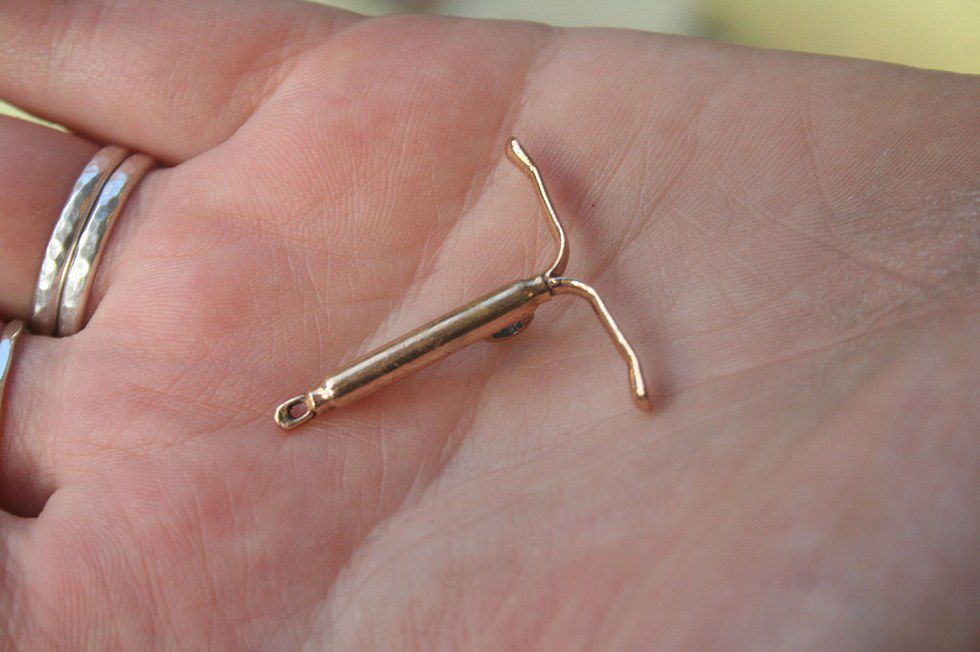Feminists—including me, probably—invaded your newsfeed this past week with heavily-biased articles discussing a male birth control study. That’s right, male birth control—something that’s always been the burden of women could finally become a shared responsibility between (cisgender) male and female partners. Unfortunately, trying out this method was not so simple. In the second stage of three FDA approval testing phases, the study was cancelled.
Because 20 men out of the 320 enrolled participants ended up dropping out due to side effects—a common occurrence in clinical studies—journalists pushed out article after article about how this was the reason the study was halted. Ah, yes, men couldn’t handle the side effects of birth control, and therefore have snatched the possibility of birth control for men away from the rest of us due to their inability to handle the side effects that women already deal with... Right? Not exactly. Despite all the reports that say so, the study was not cancelled due to a small number of men dropping out.
Rather, the study was halted because an independent review board that focuses on the safety of clinical trials found that the negative side effects outweighed the benefits. These effects included drastically lowering a man’s sperm count, which can render someone practically infertile. This happened to a few men in the study, who thankfully recovered (except for a couple of men whose status is still unknown). It sounds to me like it’s a good thing they stopped the study.
Still, media sites like Fusion and Huffington Post perpetuated the idea that it was the appearance of the other side effects that halted the study—for example, men participating also experienced depression, mood swings, acne, and changes in libido, among other symptoms. Do those sound familiar, ladies? Of course they do, because many women experience these symptoms as a result of both periods and birth control. But the fact remains that this is not the reason that the study was stopped. Sure, 20 men dropped out, but the same thing happens in studies of women’s birth control.
The authors of articles calling out the study don’t think it’s justified for men to suffer. Rather, they just want the double standard between men and women’s health, especially when it comes to reproductive health, to be resolved. I completely agree with this. There is absolutely a double standard for health issues, with everything from an overall bias toward white men in health research to the fact that the medical field has only recently come close to developing birth control for men, keeping the burden on women even today. The hormonal birth control that many women currently take presents all kinds of disruptive side effects and even health risks like the ones that men experienced in their study. The double standard that various journalists are attempting to point out using the male birth control study is that for women, we just deal with these side effects and possible risks. We don’t want a pregnancy, and neither do our partners, so we—not me personally, but women as a whole—continue to use things like the IUD insert, which can cause sepsis and uterus tears, or the pill, which often causes intense mood swings including depression as well as acne and weight gain. Nobody halted the study that created the birth control women use now, despite the side effects.
Still, the journalists that laugh at the male birth control participants don’t realize that they’re using incorrect information to make their point. Men’s birth control caused side effects that anyone would’ve deemed unacceptable, such as potential infertility. The study wasn’t halted because men can’t handle the same symptoms that women can; in fact, 75% of the men in the study said that the side effects were worth it and that they’d use this form of birth control again. However, I’m sure that there are men out there who, even minus the infertility risk, would refuse to take birth control simply due to mood swings and acne. Those are the men we should be calling out. Furthermore, while I agree that it was a good idea to halt this study, I hope that they would have done the same for women, and that medical scientists continue to work toward birth control for women that does not hurt them. On top of that, it’s time to complete the development of male birth control and let men share the burden of preventing pregnancy.























